|
After Love and Faith, Hope is number three. People tend to dismiss Hope as the cute but fluff-headed, emotional baby sister. They say, Hope is not as hard-working as Love, not as intellectually confident as Faith. They say, Hope is often a disappointment. I reply, they are mistaken. I here will praise hope. You may be surprised that I value hope. Perhaps you have heard me growl, “I am the enemy of wishful thinking!” 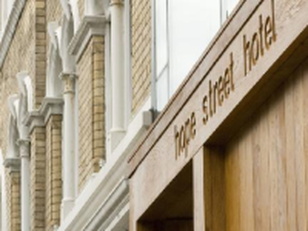 I have wasted and seen wasted too much effort on unfounded fantasies, on irrational choices, on self-serving plans, on convenient beliefs, on assumptions and presumptions . A child hopes for recognition. Christian students predictably hope for Christ to return before exams begin. A girl hopes to change her lover. A worker hopes for promotions. A parent hopes their child will bring them pride. Many earnest hopes are not fulfilled. People are disappointed when they hope. So to avoid disappointment, they avoid hope. Consider though, that hope is more pleasant than the alternative. Regarding the worst outcome, Marion Zimmer Bradley wrote, “The road that is built in hope is more pleasant to the traveler than the road built in despair, even though they both lead to the same destination.”  Consider also that people without hope tend to give up, to not exercise creativity, and to hoard their resources. When the unexpected opportunity arrives, these people are unprepared. But with hope energizing their ideas, with hope strengthening their hands, with hope bearing them on in endurance― sometimes, improbably, people succeed. "Rabbits give up when they're caught by coyotes ... they consent to die because they’re animals and can't understand hope. But humans are different. They fight against death no matter how bad things seem, and sometimes, even when everything's against them, they win." ― Nancy Farmer “Everything that is done in this world is done by hope.” ―Martin Luther “Hope is like lead in the pencil, without which, you can't write even a single word in Life.” ― Tausif “A leader is a dealer in hope.” ―Napoleon Bonaparte "I believe that history is not made by cynics; it is made by realists who are not afraid to dream. And let us be these people" ― Tzipi Livni, 2013-07-30 Sometimes you can act to serve hope. Sometimes you cannot act toward hope. Always you can pray in hope. Without hope, only with grinding mechanical dullness do I pray or act.  Faith is grounded in blessings of the past. Love lives unconditionally in the now. Hope focuses on good in the future. Hopes can be general: safety, honor, companionship, a sense of significance. Maslow called such things "needs" and ordered them with physical survival as foundational. This scheme strikes me as problematic in view of bravery, self-sacrifice, high heels, and other manifestations of hope. Take that, Maslow. Hopes can be distant in time, like wanting to live healthily to an old age. They can be distant because they require intermediate steps, like winning a Nobel Prize. I must have near hopes linked to those far hopes! Thus I hope, pray and work for my daily bread. I hope, pray, and research; maybe not earning a Nobel, but taking solace that these nearby goals are worthy in themselves. If I lack related nearby hopes, then however noble, my distant "hope" is really fantasy. Two questions to ask: What far-out hopes do my nearby hopes serve? Are my distant hopes served by any corresponding, practical nearby hopes? Hopes can be presumptuous. Such a hope ignores God's stated designs. Yes, God surprises, but historically surprise happens most when hope is in God and trusts his timing and means, not presuming a specific convenient blessing. "Who can discern his errors? Declare me innocent from hidden faults. Keep back your servant also from presumptuous sins; let them not have dominion over me!" ― Psalm 19. “If this be so, our God whom we serve is able to deliver us from the burning fiery furnace, and he will deliver us out of your hand, O king. But if not, be it known to you, O king, that we will not serve your gods or worship the golden image that you have set up.” ― Daniel 3 "Then the devil took him to the holy city and set him on the pinnacle of the temple and said to him, 'If you are the Son of God, throw yourself down’ ... Jesus said to him, 'Again it is written, "You shall not put the Lord your God to the test.”' ― Matthew 4 When a wish is entirely unselfish, then it is definitely hope. If I benefit solely, then this is desire. Most things are a mix.
We too often blame hope for our failures. We might as well blame oxygen. Failures? Yes, hope accompanies failures. Love and faith also attend failures. Wise people make mistakes. As I recall, failures in my life have come more often when I acted from ignorance, coercion, or trying to save face.  Randal, an energetic, bright fellow I knew, hoped to be a prestigious lawyer. He certainly had the attention to detail and verbal skills. He passed his bar exam. On the job he found that his conscience afflicted him. He said, “I was too honest to be a good lawyer.” So he became a leader among IT systems analysts. Susan, another student I knew, hoped to become a nurse. She made straight A’s in nursing school. But when she got out, she found something for which college had not prepared her: “I didn’t like to be around sick people!” She was happier as a medical researcher. Guess what? Eventually she became a successful lawyer. With no far hope for happiness, would they have pursued anything? Beware of imitations. Hope's likeness is sometimes faked.
Don't blame hope if you use unwise means to achieve some hope. In teaching statistics students, I used the quip, “The lottery is a tax on people who do poorly at mathematics!” Later, my observing principal took me to the window. “See my blue SUV?” I did. “I won that in the lottery.” Oops. Blue SUV noted, there were 3 million tickets that yielded nothing for their buyers. Most SUVs are won from work. Though not as a terminal hope, I do hope for prosperity. I aim to choose wise means to attain prosperity. Life often presents conflicting goals. I can pursue this career or that career. I can date this person or that person. I can spend my hour with my career, with my family, or with my case of beer. Choices = riches. Decision is a good problem to have, usually better than no choice. Choices are not Hope’s business. Resolving choices are Wisdom’s department. Hope has an eye for pointing out good features in each option. Hope has a talent for finding improbable ways to have it all. Once with Wisdom's advice you have chosen something worthy and not impossible, Hope smiles and starts her work.  I close this meditation with some family distinctions...
0 Comments
Hello Surgeons!
We're continuing our Practical message series this weekend, digging into Solomon's wisdom as he gives us some great advice for living well. Our special this weekend is "Folsom Prison Blues" by Johnny Cash. Please pray for Selma Nunes' mom, she is recovering from surgery this weekend. We had a lovely time with some of the men of our community at the monthly Men's breakfast with Terry Forrester. Save the date, Aug 17th, will feature E, Sam and Emily (and possibly a couple of other Surge folks) doing the opening act for the SAW concert at the Barn. There will be some originals, some covers and a song about Potatoes. It will be a lot of fun. Next week we are continuing our Practical series with the second act of Coffee with Granddaddy... it will be a good time so bring a friend! Thanks, ~The Surge Hola Surgeons!
You are the best! Just in case no one told you yet today... We're continuing our Practical series, with the idea of Enjoying the Hand You're Dealt. We'll be talking about SIr Gawain, Green Knights, Solomon, Questions, German Philosophy with a dash of Monty Python. Our special this weekend is Viva la Vida, by Joe Satriani with lyrics by Coldplay. Youth camps are happening all over the place, with Emily helping out last week and Selma is helping run a Young Life camp this week. Please pray that these times would be great memories for the kids. The SAW Concert was a great success last night... an amazing time of prayer, followed by folks getting together and music that was simply unbelievable. Thanks to all the folks who came out - it was great to see you! Next Saturday morning, our Men's Breakfast will be up and running in full force. That's Saturday morning July 27th at 8:18. We're continuing Practical next week, with some fun music, a great message and the coolest people in northern virginia! We're kicking off our Practical series this weekend... digging into the words of Ecclesiastes and the wisest man who ever lived. We'll talk about Thailand, idols, money and how God can turn things around for the better, it's going to be great.
Special music will be Money Changes Everything by Cindi Lauper. Next Saturday (July 20th) is our night of prayer, meeting at the Barn (1988 Kirby Rd, McLean, VA 22015), that will start at 5pm! We'll follow that with some food... and the SAW concert, which is always a treat. Bring a friend, it will be a good evening. Late in the month, we'll have our Men's breakfast at Terry Forrester's place, that will be Saturday morning, July 27th. We'll be continuing our Practical Series next week with practical words of wisdom from Solomon and a great approach to live in general 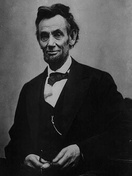 The American Civil War battle of Gettysburg occurred one hundred fifty years ago, July 1-3, 1863. Eleven weeks later, a solemn ceremony dedicated the cemetery at Gettysburg, Pennsylvania. Diplomat, professor, and pastor Edward Everett spoke to the crowd for two hours! President Abraham Lincoln was invited to add a few appropriate remarks. The next day, Everett wrote to Lincoln: “I should be glad, if I could flatter myself that I came as near to the central idea of the occasion, in two hours, as you did in two minutes.” But what did Lincoln say?
 Like many young American students I memorized this briefest of Presidential speeches. I delivered it into a microphone for the Parent Teacher Association. How it was received, I don't know. While other students made their presentations, I painfully crouched in a stuffy, draped box. "You're on," someone in the wings prompted. The audience would have seen slowly rising from the box, a black sock bearing a papier-mâché head with the familiar stove pipe hat and beard. "Fourscore and seven years ago, ...." I did not know then that there exist at least five variations of the Gettysburg Address. Press reports of the speech differ, and there are multiple versions from Lincoln's own hand! The Library of Congress and Wikipedia summarize these versions and where Lincoln got these ideas. Knowing that variations existed would have discouraged me. I certainly would have wanted to recite the "real" Gettysburg Address. But which one was it?  Later I visited the Gettysburg battlefield on a hot summer day and got a lasting impression of the devotion there. Even later, I got to know people who to various worthy causes gave the last full measure of devotion. I am glad now that I committed some of my brain to the ideas that Abraham Lincoln stated — whatever words he used—and to take increased devotion to that particular cause of government of, by, and for the people. When recently I learned of the variations in the Gettysburg Address, I was immediately reminded of the variations found in the records of what Jesus said. Every paragraph of the New Testament comes to us with variations. For example, starting at the red arrow, following is John 3:16 from Papyrus Bodmer, also called “P75”. Greek lettering style and other evidence suggests this copy was made around AD 200.  As you see, GreekwritingofthisancientvarietylackedspacesbetweenwordsandWASALLCAPITALLETTERS. It lacked most of our punctuation marks. Thus, without quote marks or other cues, some scholars think Jesus stopped talking to Nicodemus in verse 13. The remaining verses of John chapter 3 would be John’s words. Not intimidating enough for you? Jesus and those around him spoke mainly in the Aramaic dialects, a language family closely related to Hebrew. This Aramaic and Hebrew was subsequently translated to Greek such as shown above. Thus, though not without guilt, I cringe when preachers find microscopic distinctions in Greek, say in whether Jesus says the foundation of the church is Peter himself (a Roman Catholic view) or is Peter's words (a Protestant view). Words vary slightly among these old copies. For example, in John 3:16 the Bodmer copy (2nd & 3rd line) reads ton huion ton monogenay (the son the only-begotten). The Alexandrinus copy has ton huion auto ton monogenay (the son of him the only-begotten). The difference in translation is, "He gave the one and only son" versus "He gave his one and only son". For most Bible verses, the variations and ambiguities are likewise minor. Centuries of smart people have devoted their lives to organizing and reconciling these variations. They have left meticulous research notes that let dilettantes like me weigh the evidence for selecting variations other than the one they recommend. Just published is a new 28th edition of the Greek New Testament from which our modern translations derive. Some believers hold that God would not let his words be lost or altered. A few insist that a specific playlist of these words, called the "received text", miraculously preserves in Greek what Jesus said in Aramaic. Some non-believers shrug and observe that since obviously there exists variation among the texts forming the Bible we have, then God--if she exists--does not care about communication. Carl Sagan put it this way: “If God wanted to send us a message, and ancient writings were the only way he could think of doing it, he could have done a better job.” 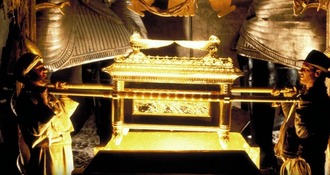 I defaulted toward the miraculous preservation view until in my twenties I started to study these old copies and look at the "apparatus" footnotes that compactly list variants. Discovering a lack of perfection did not flip me to skepticism. Though frustrated that understanding God was not as convenient nor as precise as I hoped, I reasoned that a grainy picture could be better than no picture. I resolved to avoid deriving more detail than is reliably present, to not pin an important decision to just one ancient preposition. I came to be glad that we have multiple perspectives. Matthew, Mark, Luke, and John, are such. Then early commentators and later copies also help us see in 3-D as it were. With stereo. E pluribus unum. What about, "my word will not pass away"? Did God protect the Bible? I don’t see guaranteed protection of several things God values. For example, God does not defend each of us his children from suffering and violent death. Some yes, many no. Places and things once holy—the Ark of the Covenant and the Temples in Jerusalem—are absent or destroyed. God's one and only son rose from the dead, but first he was beaten, spat upon, and executed. So should I be surprised that the scripture originals were not preserved for my convenience? More important, though bruised and abused, the words of Jesus have not been lost. God created people in his own image. But that image now is marred. There exist both wheat seeds and weed seeds. Should I be shocked that in the publication we call the Bible there might be a quantity of non-inspired words mixed with God-breathed scripture? Life requires discernment. That's not news. Do these behind-the-scenes looks at the Gettysburg Address and the Bible discourage you? I’m sorry, that has not been my intent. I don't mean to "argue about words, which has no value". My aim is to provoke you to focus on the ideas the words carry. Far from calling it quits, I study more. God's principles are irreplaceable. "Turn the other cheek, go the second mile." I would not have come up with that idea on my own. In my amateur exploration, I have found this: What Jesus said and did, and what Jesus' people said and did pierces time itself to reach me. The Bible bears adequately reliable witness to what God does for me and what God wants from me. "God loved the world so much that he gave his one and only son, that whoever believes in him should not perish, but have everlasting life." Who would die for words? But for such ideas, people have indeed sacrificed. Overcoming our poor power to add or detract, this good news has endured. Hello Surgeons!
We're wrapping up our Bad Things series, on the life of Joseph and it's going to be a great service. Special music today is Coaten Dreams, by one of our very own Surge Songwriters. Next Prayer Saturday is July 20th, we'll get together before the SAW concert at the Barn for intercession, pizza and music with friends, it will be a great evening. Our monthly men's breakfast will be on July 27th, rumors about French Toast are already starting. Please be in prayer, God is doing some amazing things behind the scenes and we are seeking His will for the best path forward. We're facing some opportunities to upgrade our support for church planting, for helping the poor and much more. Next week we're starting our Practical series, digging back into the flow of Ecclesiastes, it's going to be fun. Thanks! ~The Surge A friend just posted the Declaration of Independence on facebook, it is that time of year... if you haven't read it before, do it now - I'll wait.
http://www.archives.gov/exhibits/charters/declaration_transcript.html The political and practical relationship of Britain and the Colonies had become toxic. They said so openly. They worked within the system to try to gain, "justice... and consanguinity" to no avail. At that point, they drew a boundary, clearly and without apology... but in the process made it clear why they were doing so. The reasons were good ones, it's quite a list. Things which were absent became pillars of foundation to the new government. Juries, due process, representation, consent and taxation... all listed as grievances, because they weren't present! I certainly have not been this thoughtful when I've been in this situation, however small in comparison my little personal injustices have been. And I wonder what would have happened, if, like in the cases of India and Canada and dozens of other Colonial stations, England had been willing to simply let us go. Would our path to self-governance have been born and affected without a bloody and dismay filled Revolution? At the same time, we ourselves, did not take this easy path when the South seceded in the run up to the Civil War. And now, the consensus is that Lincoln was right to preserve the Union, even as the butcher's bill took a horrible toll. What I'm wondering is this... How well do we approach freedom in our individual lives? How highly do we hold that personal responsibility and honor? Do we give it away too easily? Do we fight for our freedoms in the right way and in the right time? It's more likely that I'm busy vacillating between apathy and over-reaction. We are moral creatures and all of us, every one, struggle with our own issues of character - borne out of experience and the deep internal decisions of our lives. Each of us share a sense of humanity and frustration in the sense that we don't always live up to our own personal ethical and moral moorings. We drift, we snipe, we laze about at times we shouldn't. But the Declaration before us is a stunning reminder that we can and should be More. It is a stunning reminder of the power of the will and the greatness of spirit God with which God has gifted us. To stand and say, "this far, no farther" is a good thing at times. It is a good thing... to communicate clearly why and how things can be better. For this communication can frame our future relationships, even if the relationship at hand is irrevocably lost. So, on July 4th, I'm reminded that freedom is an incredibly precious thing. I'm grateful that I live in a country so committed to that principle. And I'm reminded to protect the freedom I have... to take it seriously and to personally do all I can to aspire to the best path in the choices that lay ahead. |
Our Writers:At The Surge we love doing things together... that includes writing a blog! Here are a few of our main contributing authors: Greg JohnsonJesus++ Dwaine DarrahOur fearless leader, Dwaine is the lead pastor at The Surge. His experience in counter terrorism with the CIA prepared him for ministry and he likes dogs and babies even more than E does. EE (short for Eric Reiss) is the Wingman at The Surge and likes dogs, music, Mexican food, his wife Karen and his little girl Evangeline... not necessarily in that order. Archives
June 2024
Categories
All
|
|
|
The Surge Community Church
Meeting Sunday Mornings at The State Theatre in Falls Church, 11:10am! Rebroadcast Available Sunday Evenings with SurgeOnDemand, 7:00pm! |

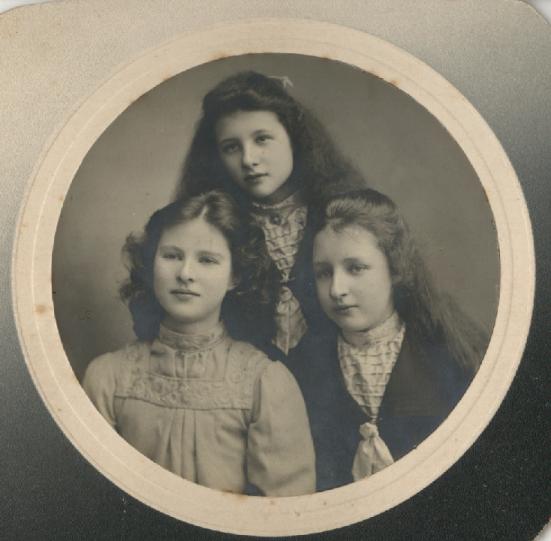
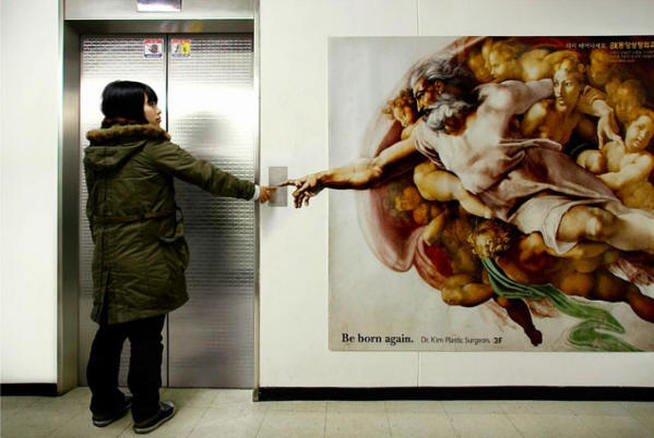
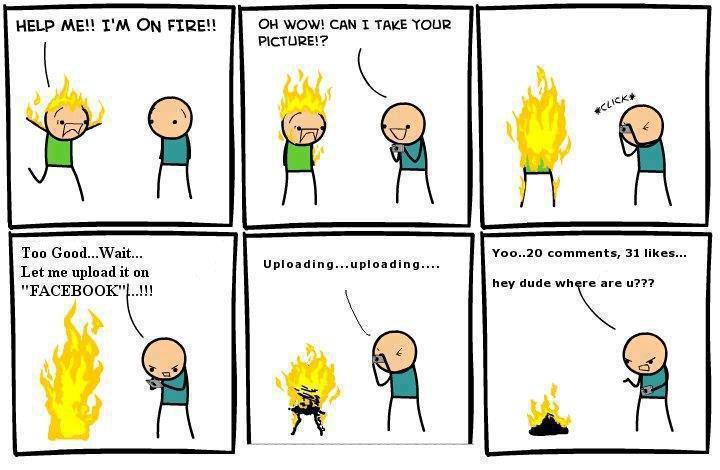

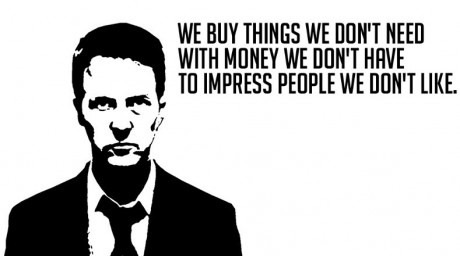


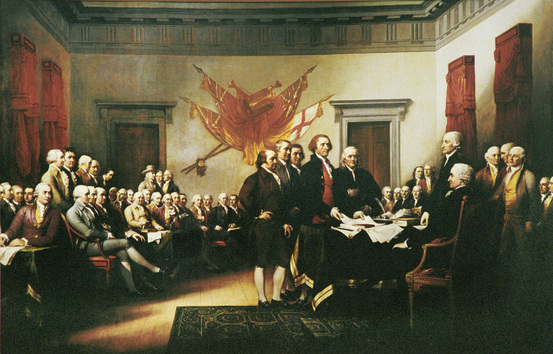
 RSS Feed
RSS Feed
